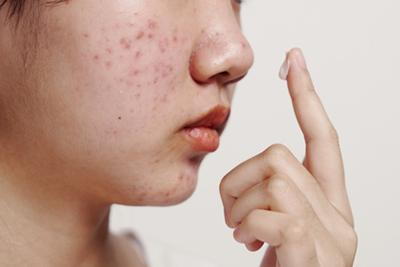Acne 101: Causes, Treatments, and Keeping Your Regimen on Point

- posted: Apr. 30, 2024
Hi, everyone! Dr. Holloway here! Today, we're diving into a common skin concern: acne. It affects millions of people worldwide, and while it might seem simple, acne can be frustrating to manage.
Let's break it down:
What causes acne?
There are four main culprits:
- Excess oil production: Androgens, hormones that increase during puberty, stimulate oil glands in the skin. This oil, called sebum, can clog pores.
- Clogged pores: Dead skin cells and sebum can form plugs in pores, creating the perfect environment for bacteria to grow.
- Bacteria: A specific type of bacteria, Propionibacterium acnes (P. acnes), thrives in clogged pores and contributes to inflammation.
- Inflammation: This is the body's reaction to the bacteria, causing redness, swelling, and the pimples we associate with acne.
Recognizing the signs:
Acne comes in various forms, from whiteheads and blackheads to deeper, more inflamed pimples (papules and pustules). Acne can appear on the face, chest, back, and shoulders.
Treating Acne:
The good news? Acne is very treatable! Depending on the severity, there are a range of options:
- Over-the-counter (OTC) products: These often contain benzoyl peroxide to kill bacteria or salicylic acid to exfoliate dead skin cells.
- Prescription medications: For more stubborn acne, stronger options like topical antibiotics, retinoids (like tretinoin), or oral medications might be necessary.
- Professional treatments: In severe cases, dermatologists can offer procedures like light therapy or extractions.
While acne itself usually resolves, it can leave scars. The best way to prevent scarring is to avoid picking or popping pimples. Early and consistent treatment also minimizes the risk.
Keeping your regimen on track:
Scarring and Prevention:
Acne treatment takes time and patience. Here are some tips for sticking to your routine:
- Find a routine that works for you: Talk to your dermatologist about a personalized plan that fits your skin type and lifestyle.
- Be consistent: Don't expect overnight results. Apply medications as directed and cleanse your skin regularly.
- Moisturize!: Even oily skin needs hydration. Look for oil-free, non-comedogenic moisturizers that won't clog pores.
- Adjust as needed: Your skin and acne may change over time. Talk to your dermatologist about adjusting your regimen if your acne worsens or plateaus.
Remember, acne is a common, treatable condition. With the right approach and a little patience, you can achieve clearer, healthier skin. If you have concerns or questions about your acne, don't hesitate to schedule a consultation with a board-certified dermatologist.

